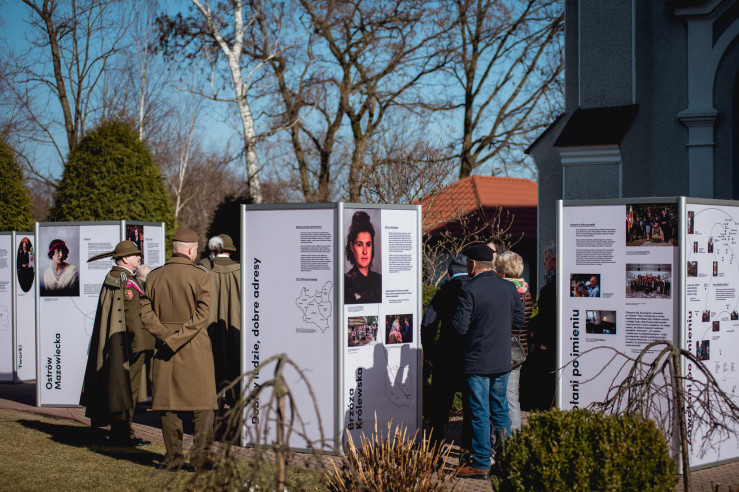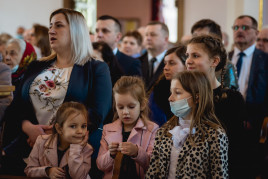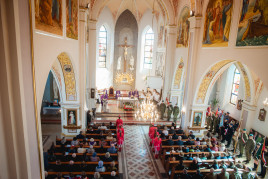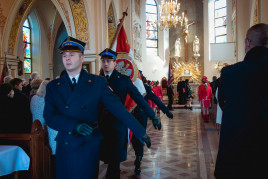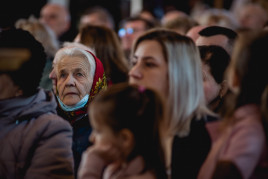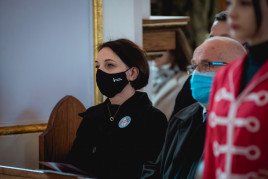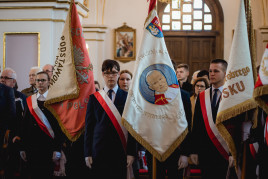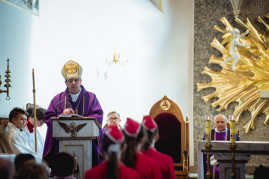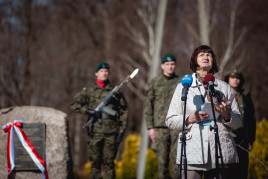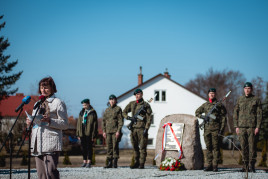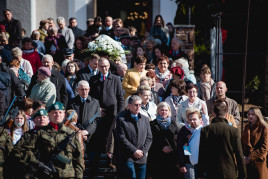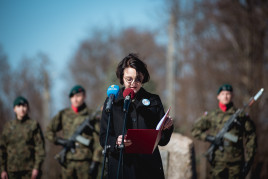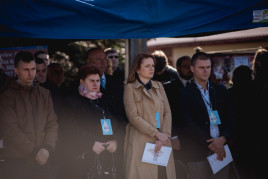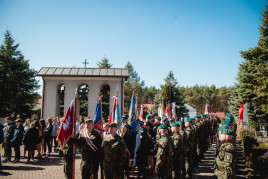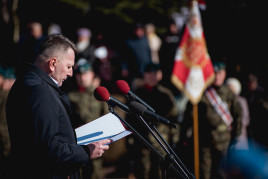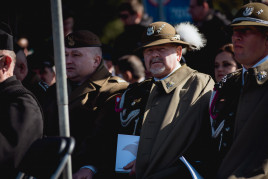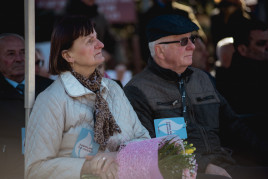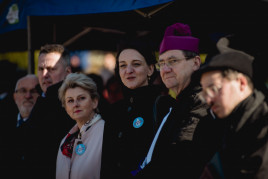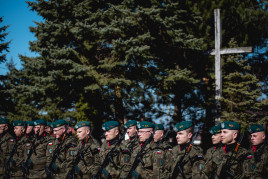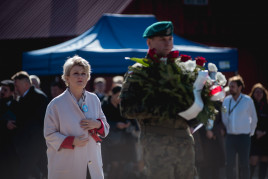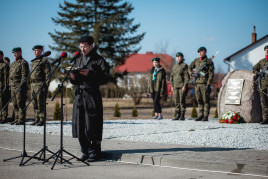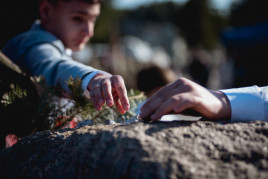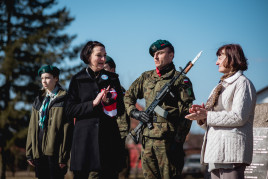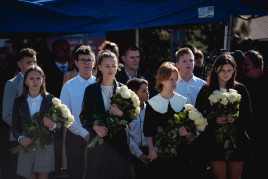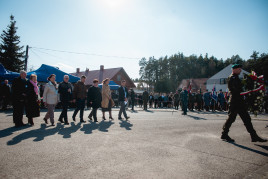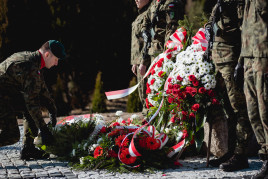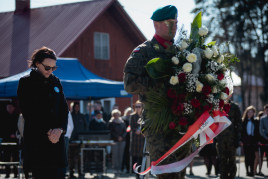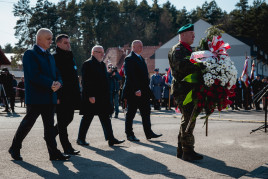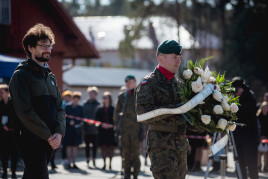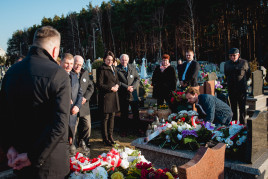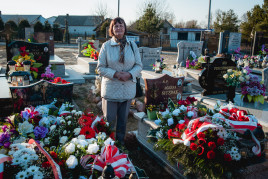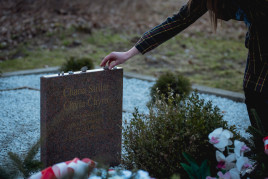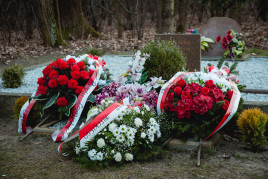Goodness is stronger than fear. Tribute to Katarzyna and Sebastian Kazak - Instytut Pileckiego
Goodness is stronger than fear. Tribute to Katarzyna and Sebastian Kazak
On 24 March 2022, the National Day of Remembrance of Poles Rescuing Jews under German Occupation, in Brzóza Królewska, we commemorated Katarzyna and Sebastian Kazak, who were shot along with three Jews by German gendarmes in 1943.
Katarzyna Sroka was born in Brzóza Królewska. In 1903 she married a local man, Sebastian Kazak. The couple settled in Sebastian’s house and had eight children. The family worked at a farm and raised animals. Once the children grew up, they went to work outside Brzóza to support the family. Only two daughters remained home – the eldest Agnieszka and the youngest Józefa.
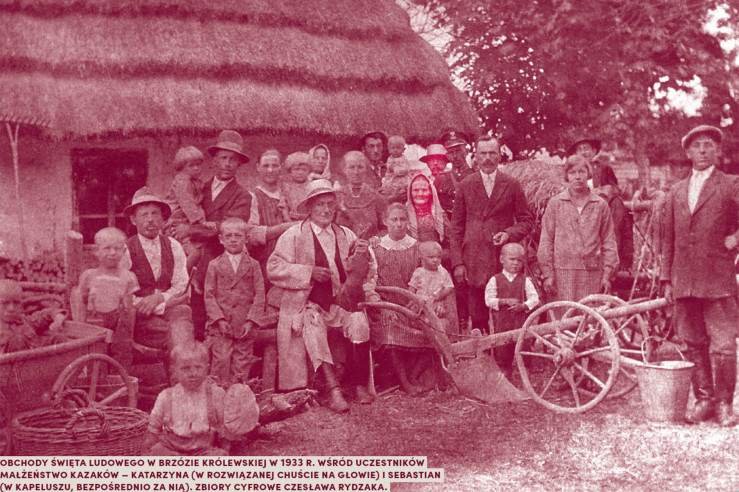
World War II and the German occupation brought tragic changes to the lives of Polish citizens, including the inhabitants of Brzóza Królewska. The increasing repressions were especially cruel towards the Jewish population. In the summer of 1942 the Germans began the liquidation of Jews in the Jarosław district. Most victims were deported to the extermination camp in Belżec. The remaining Jews began a dramatic struggle for survival, hiding in the forests, fields and seeking refuge at their Christian neighbors’ houses.
“Katarzyna and Sebastian Kazak did not refuse to help. They were hiding the children of their neighbor Pinchas Wachs at their house. The children returned home after a while, where they were eventually killed along with their parents. Then, at the end of 1942, the Kazak family gave shelter to a Jewish woman named Chana Stiller. Later, two Jews joined Chana at their house, one of them is known as Chyla Chym,” explained Anna Stróż-Pawłowska, head of the “Called by name” department at the Pilecki Institute.
Krystyna Rudnicka, Katarzyna and Sebastian's sole surviving grandchild, talks about helping the Jews and the consequences her whole family faced.
The bodies of the couple were buried at the edge of the local parish cemetery. The Kazak daughters, Agnieszka and Józefa, avoided death, but were forced to leave their family home and hide. They were sent to Germany for forced labor and returned to Brzóza Królewska in 1945. Having arrived at home, Józefa Kazak fulfilled Chana Stiller’s wish and sent the letters Chana had written while in hiding to her relatives.
In 2008, Katarzyna and Sebastian Kazak were awarded the “Righteous Among the Nations” title by Yad Vashem.
On 24 March 2022 the Pilecki Institute commemorated Katarzyna and Sebastian Kazak.
“As the only living granddaughter of Katarzyna and Sebastian Kazak, who were murdered by the Germans for aiding Jews during World War II, I want to thank the initiators of this project – the Pilecki Institute in Warsaw. (…) I am moved and delighted that a commemorative plaque was unveiled in Brzóza Królewska. I am very proud of my ancestors. It is a shame that my mother had passed away before the plaque commemorating her parents was unveiled, but I believe she is looking at it from above and sharing my joy,” said Krystyna Rudnicka during the event.
The event was organized under the honorary patronage of the Polish President Andrzej Duda, who addressed the participants: “With deepest reverence and admiration we remember our countrymen who did everything in their power to save the persecuted, despite being threatened with death by the Germans. Their courage and sacrifice is a testimony to the Christian compassion and human solidarity, which will always be an exemplary stance to take in the face of terror and extermination. This stance is what we should aspire to. I wholeheartedly believe that it will inspire the future generations. We see it as our duty to cultivate the memory of the tragic fate of Jews and the heroic actions of Poles who protested against these crimes. We are honored to have an obligation to follow our heroic countrymen by helping those in need.”
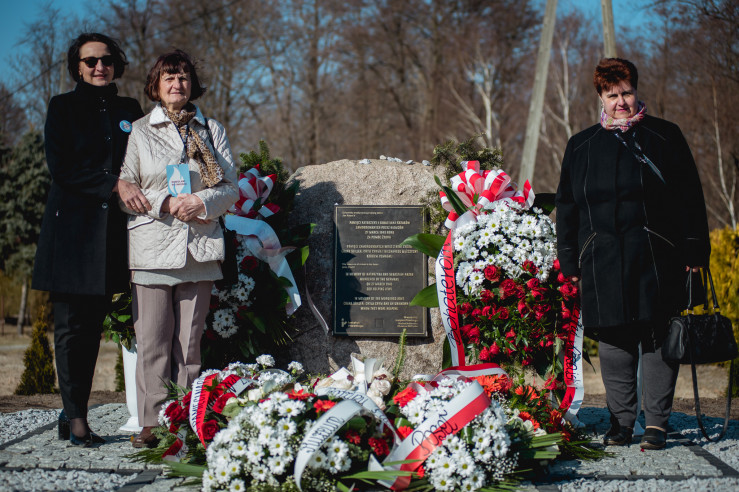
“Western Europe doesn’t know death penalty for providing help. Death as punishment for help is a terrible thing, a unique phenomenon in the history of Europe. It didn’t exist before World War II or afterwards. We have to remember our local heroes and say loudly that death penalty for providing help will never happen again!” stressed Prof. Magdalena Gawin, director of the Pilecki Institute and initiator of the Called by name program.
The event organized by the Pilecki Institute, the Leżajsk Starost Office, the Leżajsk Commune and the Brzóza Królewska Provost Office attracted many participants. Among them were representatives of the local government, cultural and education institutions, and uniformed services. There were also many school children, scouts and representatives of regional associations and organizations. Among the staff of the event were soldiers from the 16th combat engineer battalion from Nisko, the 2035 Leżajsk Riflemen Unit and the Rzeszów Military Orchestra, as well as the Leżajsk troop of the Polish Scouting and Guiding Association, teachers and students of the John Paul II Elementary School in Brzóza Królewska. After the unveiling of the commemorative stone, the participants visited the graves of the Kazak family in the parish cemetery and the grave of the Jewish victims in Wierzawice.
Prior to the event, a two-week educational campaign was organized in Brzóza Królewska and Leżajsk, and on the eve of the commemoration a mobile version of the “Called by name” exhibition was set up. The exhibition explains the idea behind the program and presents the stories that have been commemorated so far.
